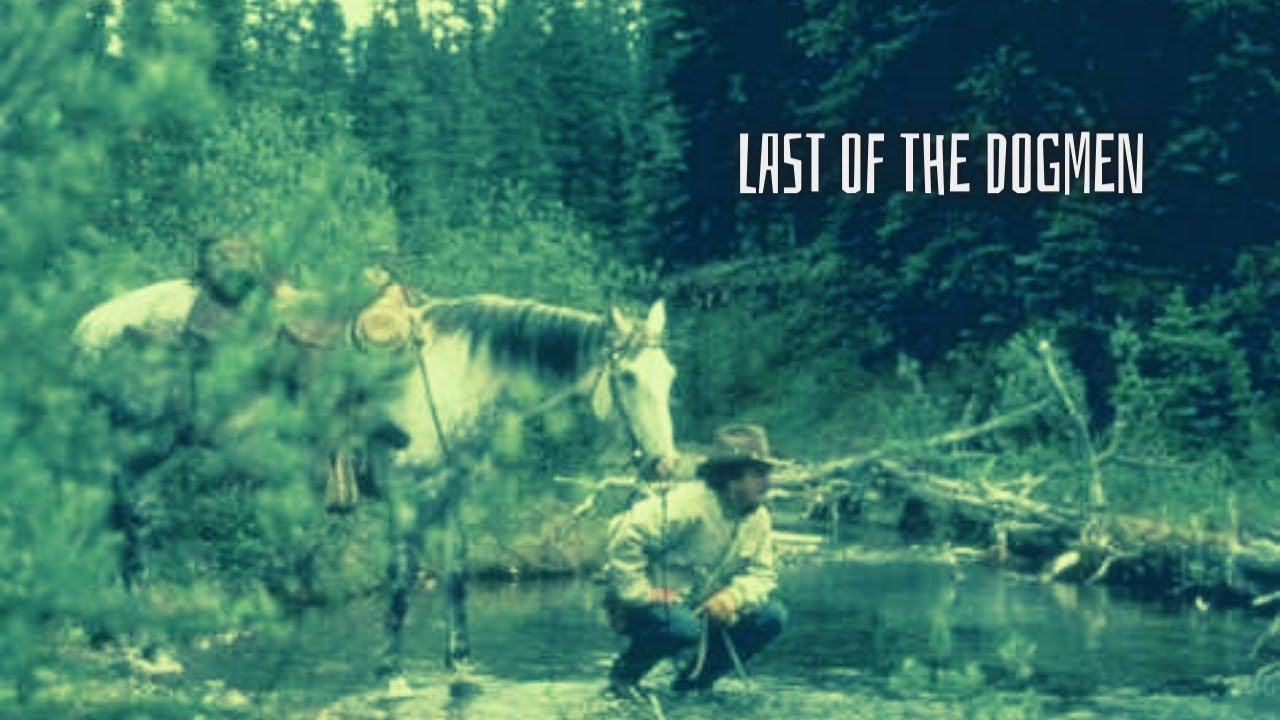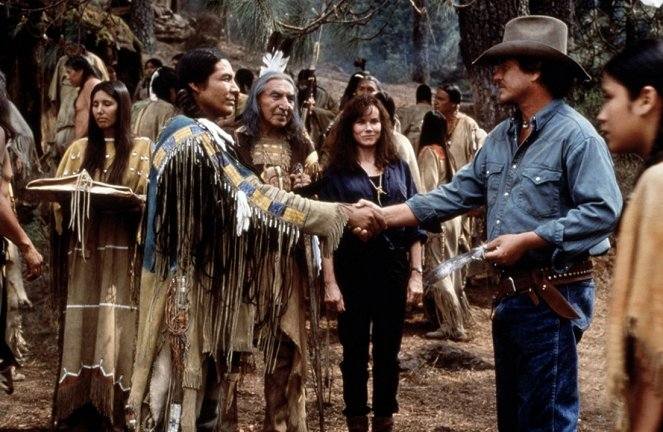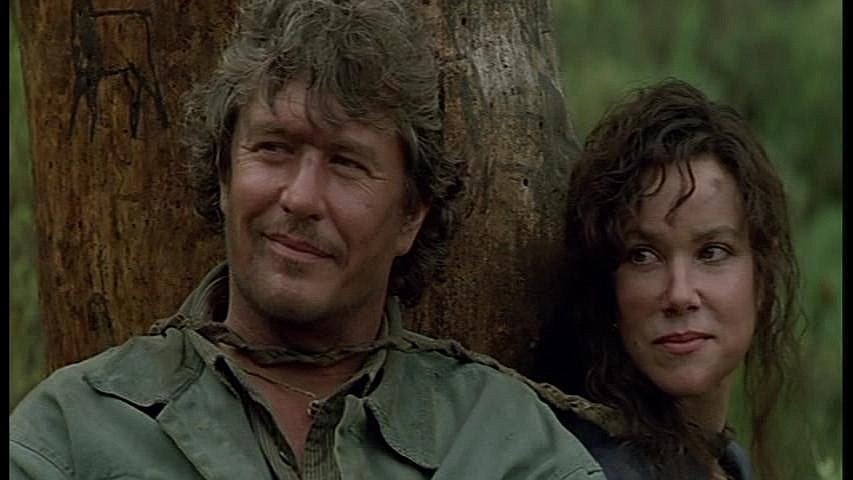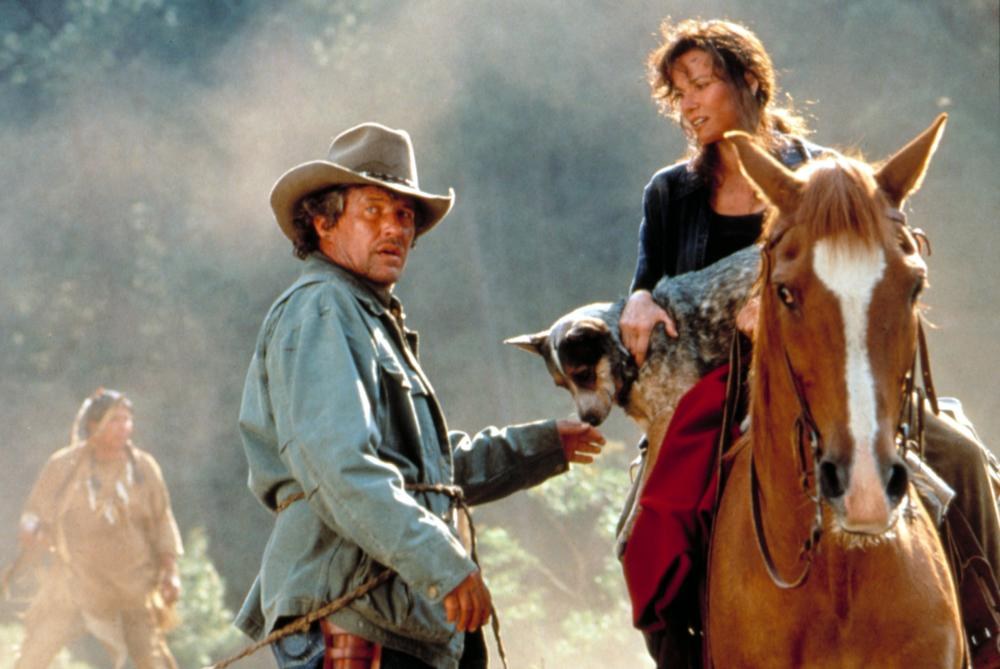Last of the Dogmen (1995)

Last of the Dogmen (1995) is a Western film directed by Tab Murphy, who also wrote the screenplay. Starring Tom Berenger, Barbara Hershey, Kurtwood Smith, and Steve Reevis, the film takes viewers on a journey through the rugged Montana wilderness, blending elements of adventure, history, and mystery. The film follows the story of a bounty hunter, Lewelyn (Berenger), who embarks on a quest to track down a group of mysterious people believed to be the descendants of Native American warriors. Through its breathtaking landscapes and emotional depth, Last of the Dogmen explores themes of connection, heritage, and redemption.
The story begins when Lewelyn (Tom Berenger), a bounty hunter, is hired to track down a fugitive in the wilds of Montana. During his search, he stumbles upon evidence suggesting that a group of Native American warriors, believed to have disappeared long ago, are still alive and living in the wilderness. He joins forces with a local woman, Catherine (Barbara Hershey), who is an expert in Native American culture. As they venture deeper into the wilderness, they uncover secrets about the past and the forgotten history of the indigenous people, leading them to a profound discovery about the connection between humans and nature. The film is an emotional and spiritual journey as Lewelyn faces both external and internal challenges.
One of the central themes of Last of the Dogmen is the exploration of heritage and identity. The film sheds light on the loss and survival of Native American culture, focusing on a group that has been cut off from modern society. Lewelyn’s journey of discovery becomes a search for meaning, as he questions his own identity and connection to his past. Through his interactions with Catherine and the Dogmen, he begins to understand the importance of preserving culture and history. The film emphasizes the idea that our identities are shaped by both the past and the present, and it highlights the spiritual bond between people and the land.
The film’s characters are deeply developed, and the performances are exceptional. Tom Berenger’s portrayal of Lewelyn is compelling, as he brings complexity to the role of a man who is initially cynical and hardened by his life as a bounty hunter but slowly opens up to the idea of redemption and reconnection with his humanity. Barbara Hershey’s portrayal of Catherine adds a layer of wisdom and compassion to the film, as she helps Lewelyn navigate his emotional journey. The chemistry between Berenger and Hershey is palpable, and their relationship becomes central to the film’s emotional impact. Steve Reevis, as a member of the Dogmen tribe, provides a strong and understated performance that highlights the strength and dignity of the characters.

Tab Murphy’s direction in Last of the Dogmen is both visually striking and emotionally resonant. The film’s cinematography beautifully captures the vast landscapes of Montana, with sweeping shots of mountains, forests, and rivers that serve as both the physical setting and the emotional backdrop for the characters’ journey. The wild terrain reflects the untamed spirit of the Dogmen and the characters’ internal struggles. Murphy’s pacing is slow and deliberate, allowing the audience to absorb the emotional weight of the story and the breathtaking beauty of the wilderness. The film’s tone shifts between tension and serenity, creating a captivating atmosphere that draws viewers into the narrative.

Upon its release, Last of the Dogmen received generally positive reviews, with critics praising the film for its heart and the performances of the cast. While some felt the film’s pacing was slow at times, many appreciated its emphasis on character development and the exploration of important themes such as cultural preservation and redemption. The film is often regarded as a hidden gem within the Western genre, blending traditional elements of Westerns with a deeper, more spiritual narrative. It has found an audience over time, especially among those who appreciate films that reflect on human connection, history, and the power of nature.

In conclusion, Last of the Dogmen is a poignant and beautifully crafted Western film that explores themes of heritage, redemption, and the enduring connection between humans and nature. Through strong performances, a compelling story, and stunning cinematography, the film delivers an emotional and thoughtful narrative. It reminds viewers of the importance of preserving cultural identities and the profound lessons that can be learned from our shared history. Last of the Dogmen is a cinematic journey that will resonate with audiences long after the credits roll, offering a moving meditation on the past, the present, and the ways in which we find meaning in the world around us











